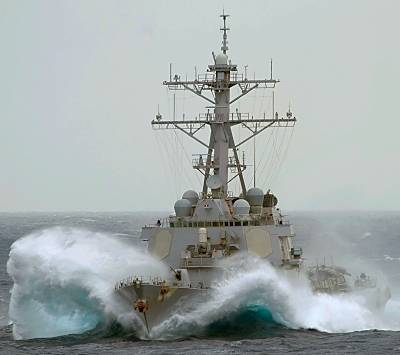ISLAMABAD, Pakistan, July 24, 2010 — Navy Adm. Mike Mullen stressed America’s commitment to Afghanistan and the region during interviews with Pakistani TV and print reporters today.
The chairman of the Joint Chiefs of Staff told reporters that the July 2011 date President Barack Obama has set as the start of drawing down the plus-up of troops he ordered in November does not mean the United States will run for the doors.
Mullen spoke directly to those Pakistanis who doubt America’s commitment in Afghanistan. “America’s military mission there will not end in July 2011,” Mullen said slowly and deliberately.
A year from now, the United States and its International Security Assistance Force partners will begin the process of handing over security responsibility to Afghan security forces.
“We will do so only as fast and as far as conditions permit,” he said. “No one is looking for the door out of Afghanistan, or out of this region.”
Mullen said that while the U.S. military presence will diminish, American friendship and strategic partnership will endure. “The United States military is as committed to our relationship with Pakistan as it is to our mission in Afghanistan,” he said.
The regional approach is the only way to defeat extremist groups that ignore borders and prey on helpless people wherever they find them, the admiral said.
“No one nation, and no one military can accomplish our shared goal of a stable and secure Afghanistan,” he said. “We need Pakistan’s continued help and, frankly, we still believe we have much to offer you in return.”
Mullen emphasized that there are no American combat troops in Pakistan, nor will there be. There are about 120 American trainers who work with the Pakistani military at the Pakistani government’s request and they will remain, he said.
“This is not America’s war. It’s a regional war, and, in some ways, a global war,” he said.
The chairman appreciates the sacrifices of the Pakistani people against common foes in what is an uncommon and treacherous fight. The Pakistani military has conducted 16 months of ceaseless battle against extremists who are an existential threat to the Pakistani government, its people and their way of life.
Mullen also addressed what he sees as a growing problem in the interconnectedness among terrorist groups. Lashkar-e-Taiba is an example of a group that had limited goals at first – the “liberation” of Muslims in Kashmir – that has morphed into a general purpose terror group with regional and even global aspirations. LeT is affiliated with al-Qaida and other terror groups, he said.
LeT launched the attacks in Mumbai, India, in 2008 that killed 166 people, and brought relations between India and Pakistan – both nuclear-armed countries – closer to war, Mullen said.
The group is active in Afghanistan, and has targeted areas of South Asia, Europe and the United States.
Source:
U.S. Department of Defense
Office of the Assistant Secretary of Defense (Public Affairs)

 von
von 